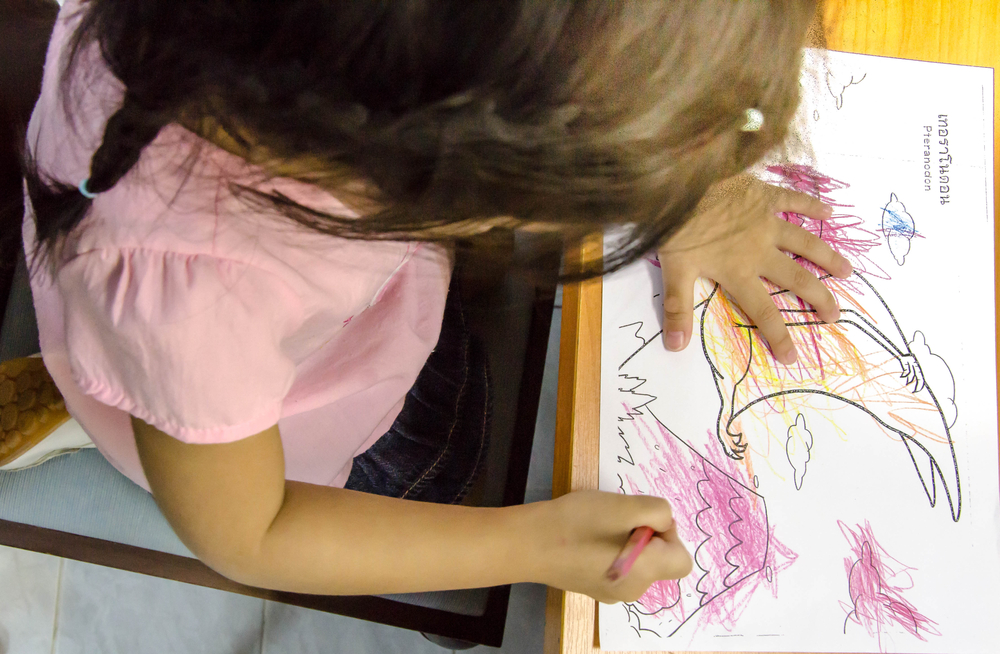Reading skills development Normal Worksheets for Ages 4-8
7 filtered results
-
From - To
Develop essential reading skills in children ages 4 to 8 with our comprehensive and engaging worksheets. Designed to build foundational literacy, our activities focus on key areas such as phonics, vocabulary, comprehension, and fluency. Each worksheet provides fun, interactive methods to improve your child's abilities, making learning enjoyable. Boost reading confidence through well-structured tasks that cater to different learning stages and speeds. Explore our collection and watch your young reader excel while fostering a love for reading that lasts a lifetime. Perfect for at-home practice or in-class reinforcement, our resources support every budding reader's journey.
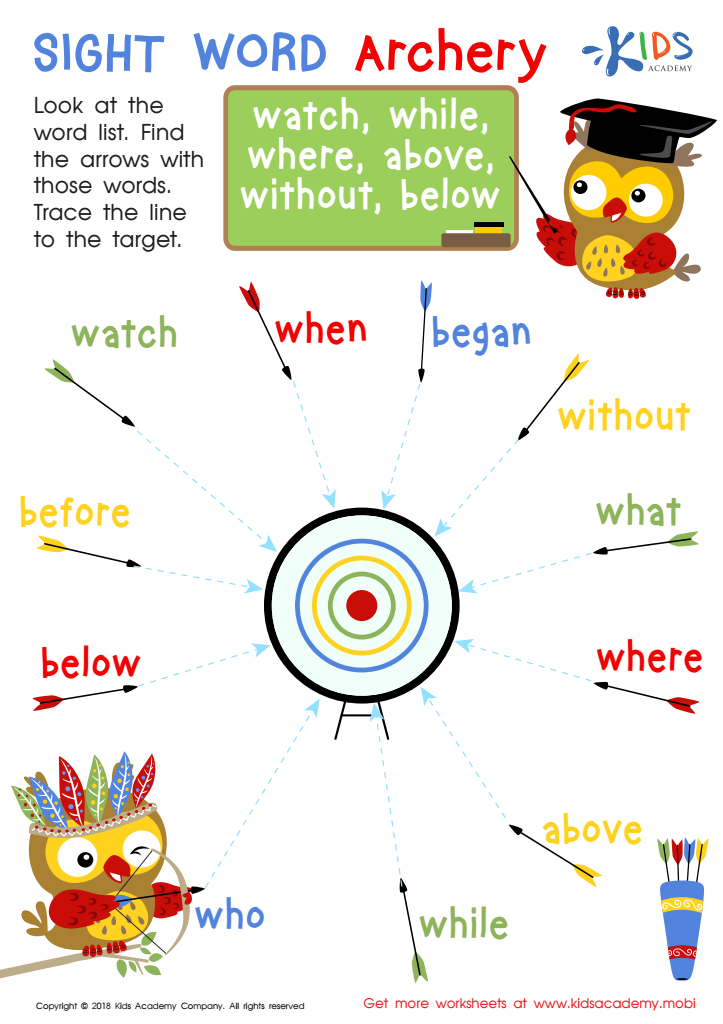

Sight Word Archery Worksheet
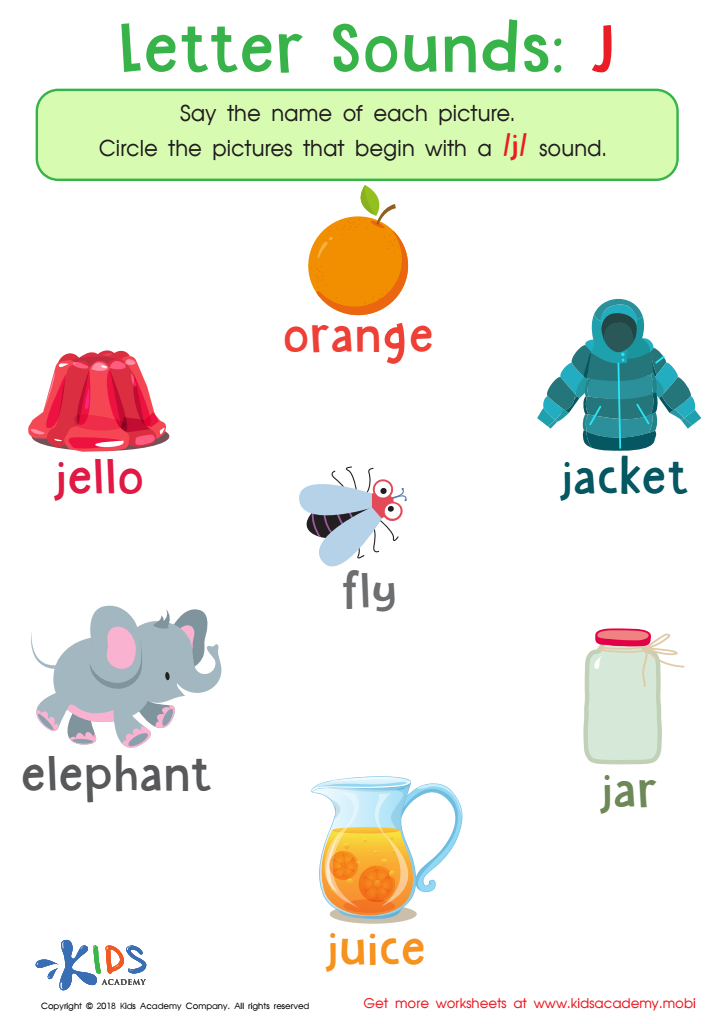

Letter Sounds: J Printable Worksheet
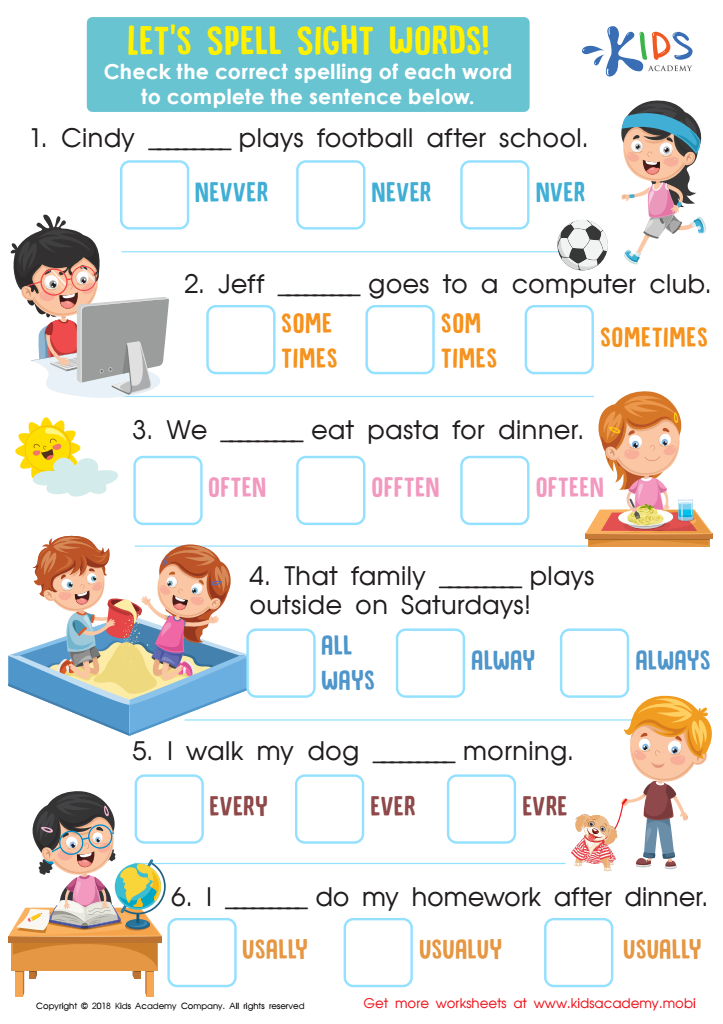

Let's Spell Sight Words Worksheet
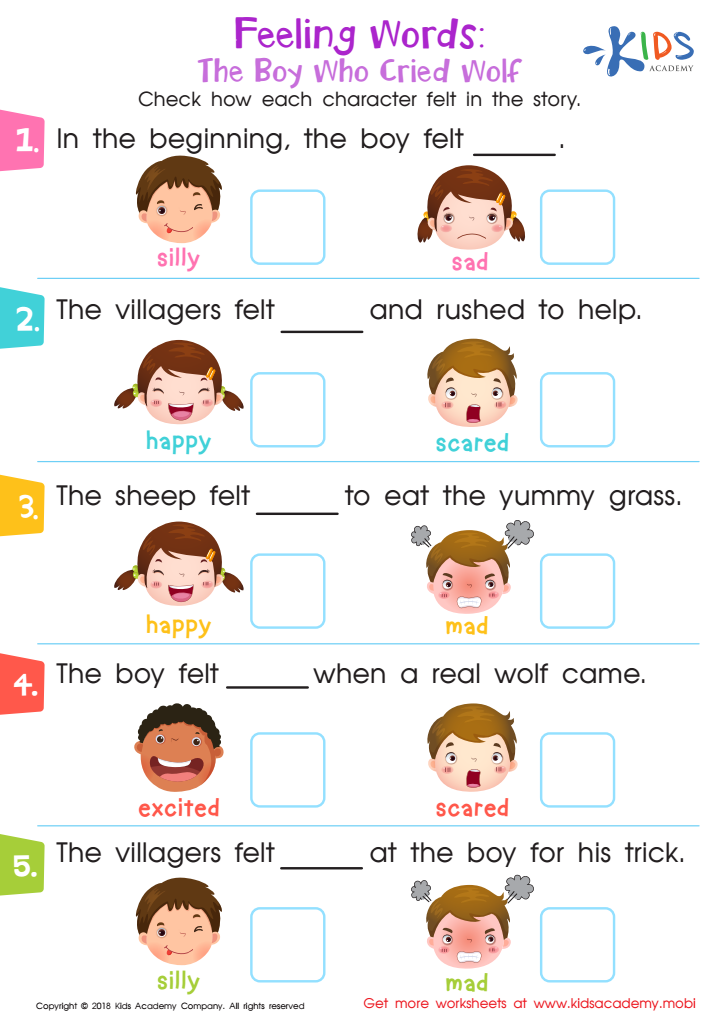

Feeling Words: The Boy Who Cried Wolf Worksheet
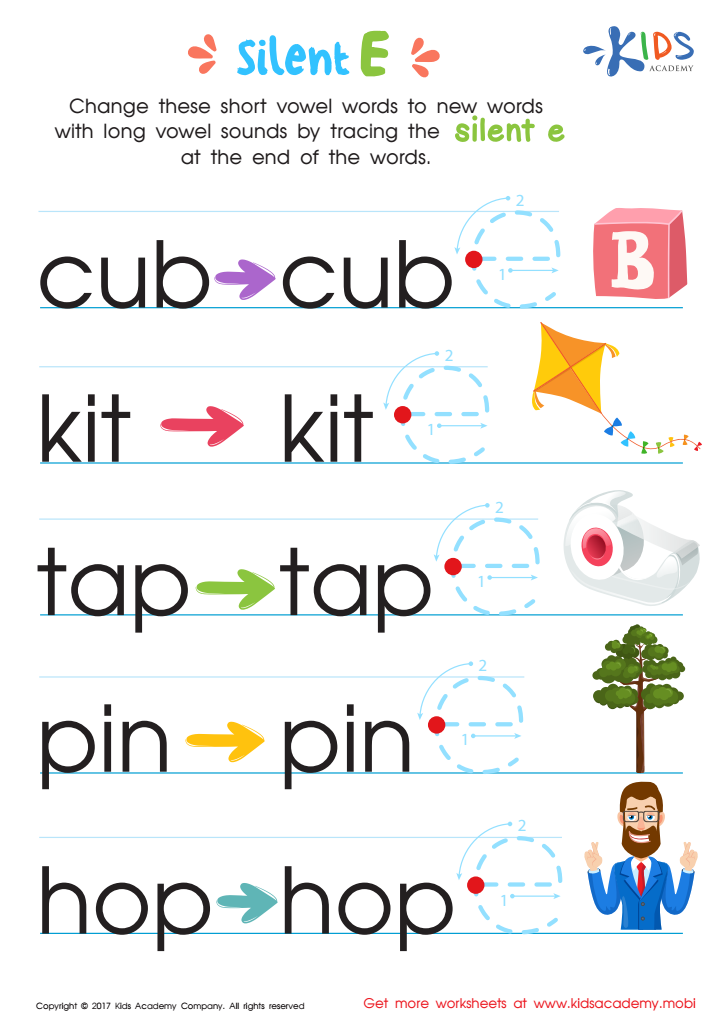

Silent E Words Worksheet
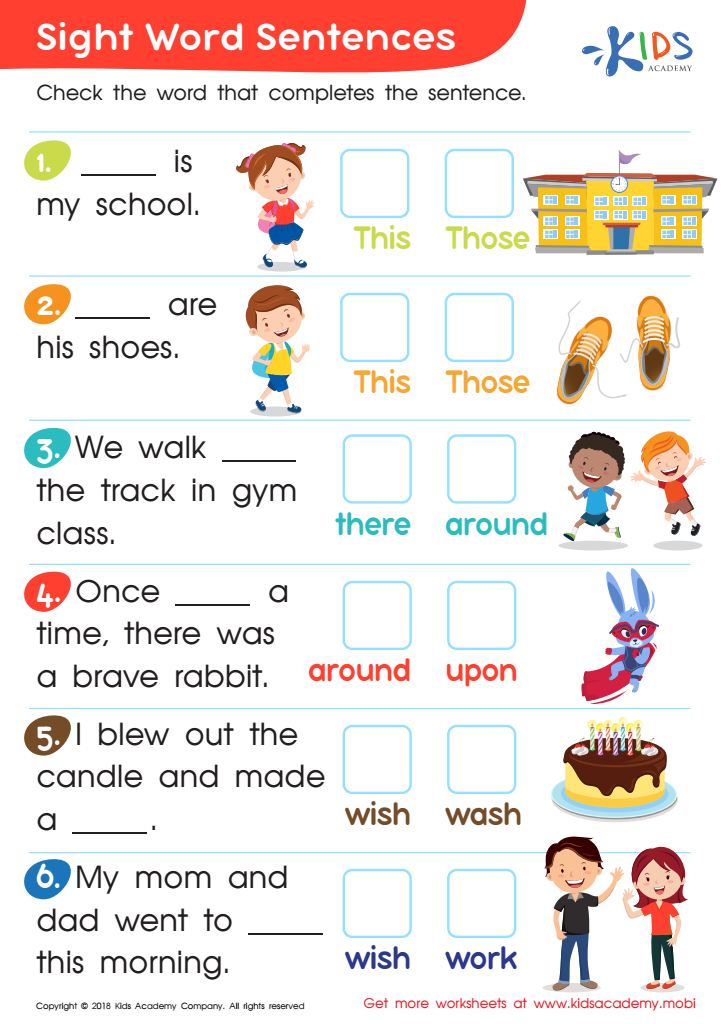

Sight Word Sentences Worksheet
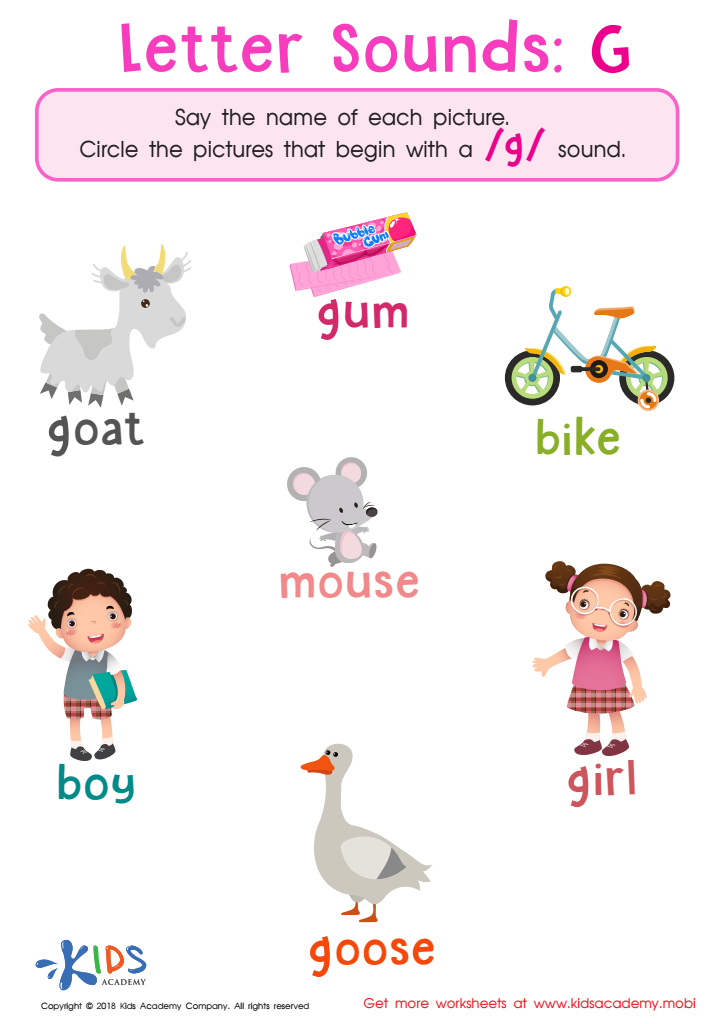

Letter G Sounds Worksheet
Reading skills development in children aged 4-8 is crucial for several reasons, and it’s essential for parents and teachers to invest in this critical stage of learning. Firstly, reading lays the foundation for all future learning. Children with strong reading skills are better able to grasp other school subjects, from math to science, as reading comprehension is integral to understanding instructional materials.
Secondly, reading fosters cognitive development. It stimulates brain functions related to memory, attention, and critical thinking. When children engage with texts, they not only decode words but also make connections, predictions, and inferences, enhancing their overall intellectual growth.
Social and emotional development is another key reason. Engaging with stories helps children understand different perspectives and emotions, fostering empathy. They learn to appreciate diversity and navigate their feelings and relationships better, contributing significantly to their social skills.
Reading also expands vocabulary and language skills. It exposes children to new words and phrases, enriching their conversational abilities and supporting better communication, both spoken and written.
Most importantly, cultivating a love for reading early on sets a lifelong habit. When children associate reading with pleasure, they are more likely to continue seeking knowledge and joy through books, making them lifelong learners.
Therefore, prioritizing reading skills during these formative years is vital for holistic child development.

 Assign to My Students
Assign to My Students


